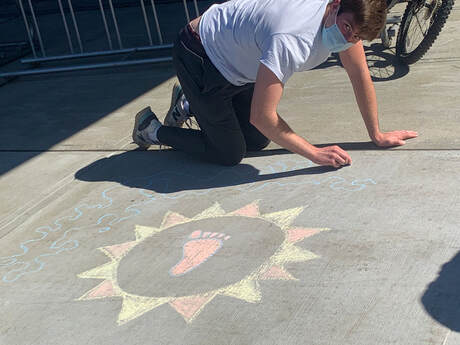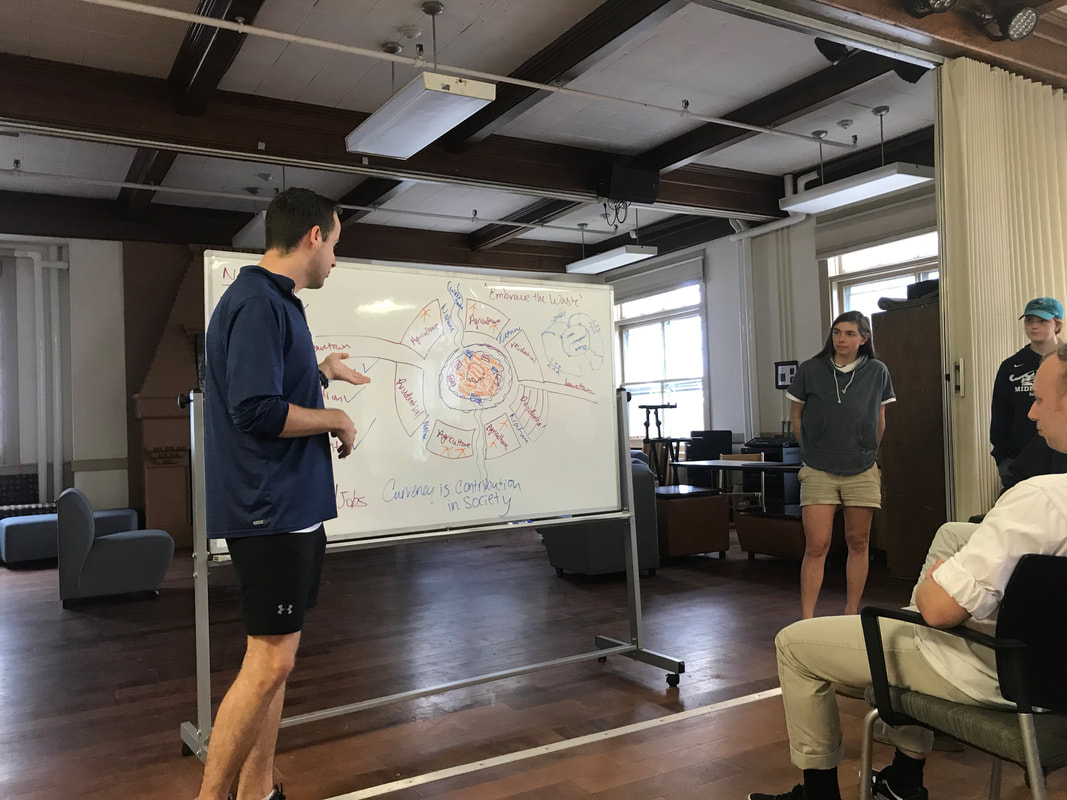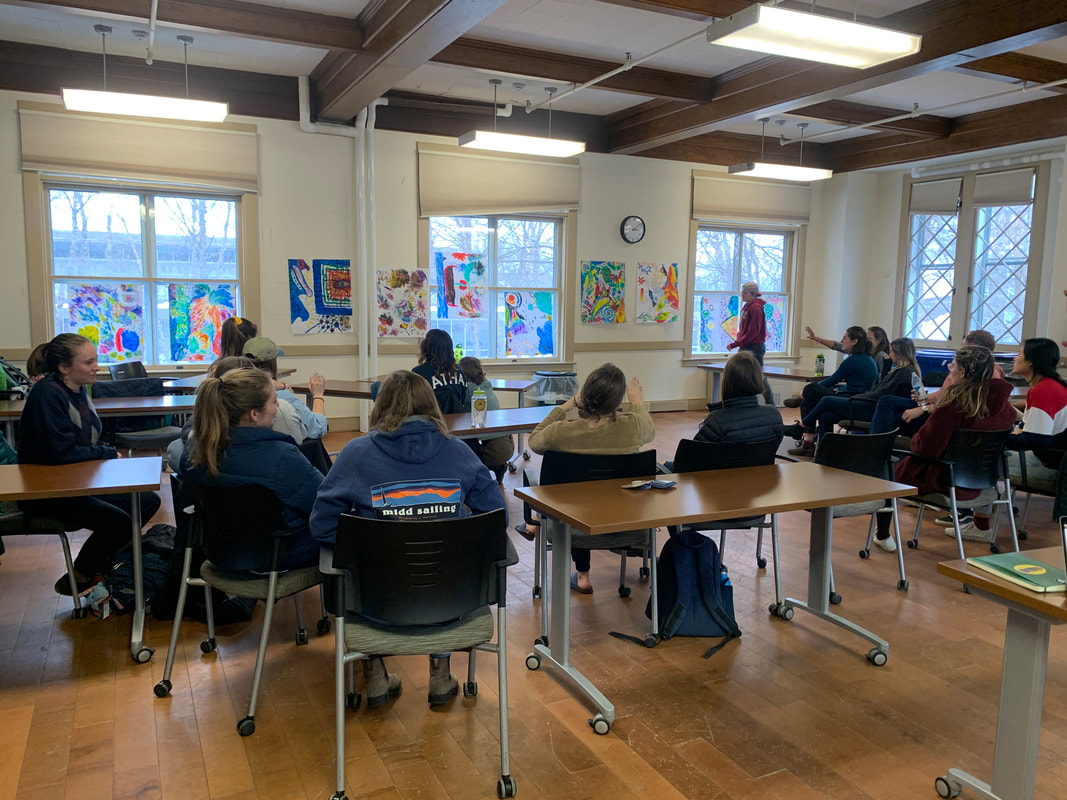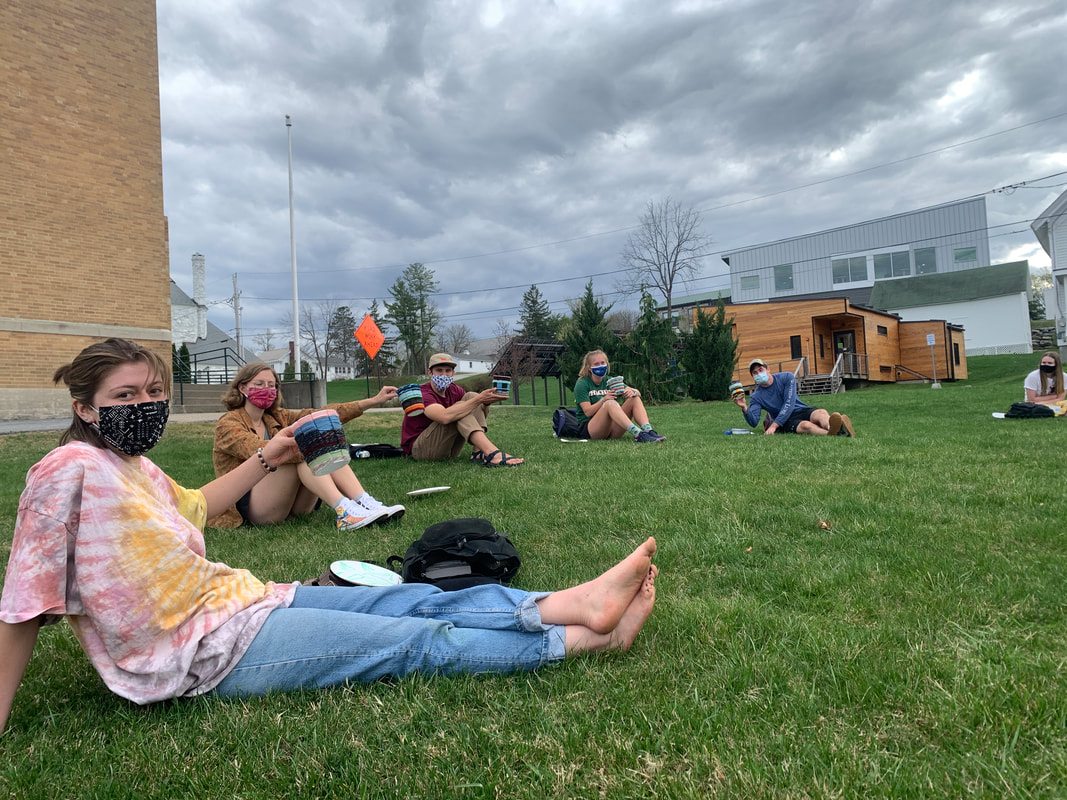Teaching Approach
In my classrooms since 2004 students are invited to the praxis - the fluid yet critical space between theory and practice. By fostering student inquiry into an ecocentric worldview through exposure to origin stories of indigenous people and ancient civilizations, futurist theories, community-connected learning, and contemplative practices my primary goal is to critique the dominant human-designed ontologies through metapresence: holding the past, present, and future simultaneously to make visible the impact of the human species on the planet's ecosystem.
Students explore embodied contemplative practices such as journaling and sitting, as well as different ways of knowing using all the senses. Through community-connected learning I ask students to engage with practitioners to weave their past and current classroom work into partners' work on the ground addressing real-world problems in real time. How does our relationship to our studies and our way of seeing change when we consider the ecological connections between the individual and the collective, the microcosm and the macrocosm? Where is the application of theory successful as we marry it to the practical work? Where is it not? Why?
By bringing the beginner's mind to big questions, and mining the space between hope and cynicism students apply theories of systems-thinking and inter-dependence to these unique and complicated times.
Students explore embodied contemplative practices such as journaling and sitting, as well as different ways of knowing using all the senses. Through community-connected learning I ask students to engage with practitioners to weave their past and current classroom work into partners' work on the ground addressing real-world problems in real time. How does our relationship to our studies and our way of seeing change when we consider the ecological connections between the individual and the collective, the microcosm and the macrocosm? Where is the application of theory successful as we marry it to the practical work? Where is it not? Why?
By bringing the beginner's mind to big questions, and mining the space between hope and cynicism students apply theories of systems-thinking and inter-dependence to these unique and complicated times.



